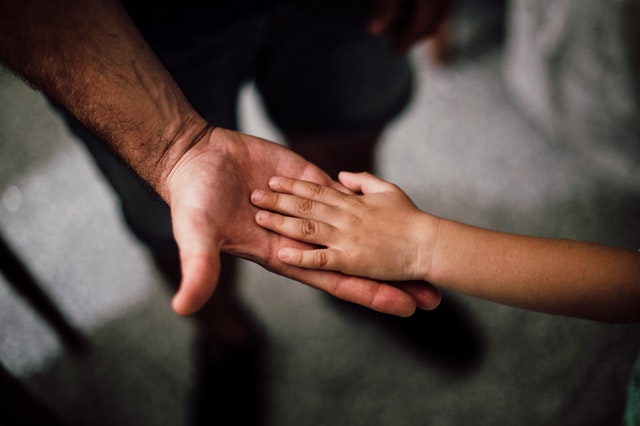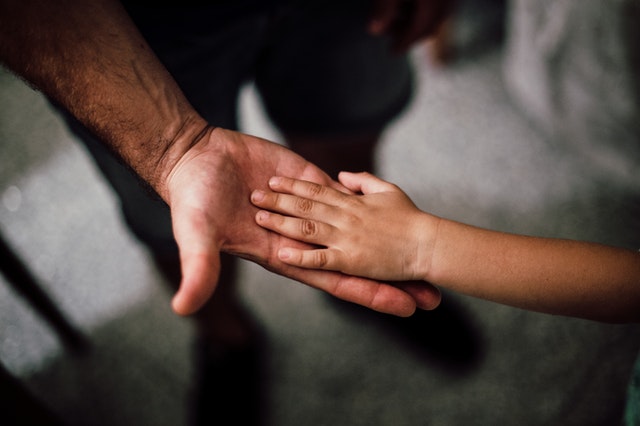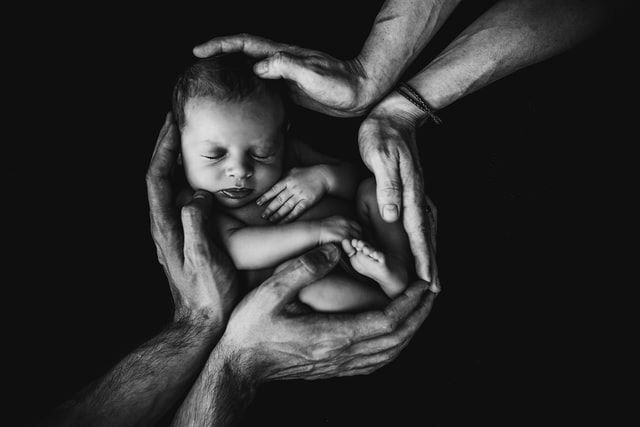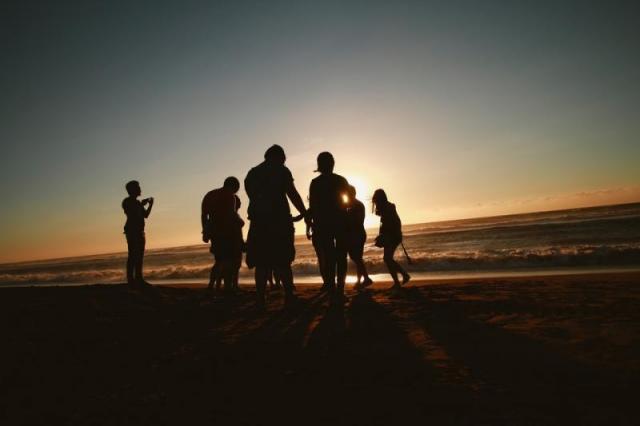Death of Malachi Subecz: Review reports and responses
Thu 15 Dec 2022
Government reports have shared findings from the reviews of the death of Malachi Subecz. Advocates have responded to the recommendations, calling for change.

Reports from reviews of death of Malachi Subecz
Multiple recommendations have been made in reports looking at the death of Malachi Subecz. 5 year old Malachi was murdered by his caregiver in November 2021. At the time Malachi's mother was in prison, and family members raised concerns about Malachi's safety with Oranga Tamariki, but their concerns were dismissed.
Multiple government reviews looked at the events leading to the death of Malachi.
Reports from reviews
Independent review and individual agency reviews
Dame Karen Poutasi was commissioned by 6 government agencies to look at how these agencies were involved with Malachi, his whānau, and his caregiver in the months before his death. Dame Poutasi's final report, Ensuring strong and effective safety nets to prevent abuse of children (2022), identified 5 critical gaps in the system:
• "In identifying the needs of a dependent child when charging and prosecuting sole parents through the court system.
• In the process for assessing the risk of harm to a child, which is too narrow and one dimensional.
• In agencies and their services not proactively sharing information, despite enabling provisions.
• In a lack of reporting of risk of abuse by some professionals and services.
• In allowing a child to be invisible. The system’s settings enabled Malachi to be unseen at key moments when he needed to be visible."
Dame Poutasi also made 14 recommendations. In a media statement Dame Poutasi highlighted 4 of these recommendations: improving information sharing across agencies and authorities, mandatory reporting, vetting of proposed carers when a sole parent is arrested and/or taken into custody and greater priority to increasing multi-agency, iwi, and NGO partnerships in regions and communities.
For more information see the Q&A for Dame Poutasi's review. The individual government agencies who commissioned the independent review, also carried out reviews or reports of their processes. This includes:
- New Zealand Police completed a Police Family Violence Death Review (PFVDR)
- Ministry of Health completed a review and published an update on their review
- Ministry of Social Development provided a report about their interactions
- Department of Corrections published a media release and a summary of the report from the independent Corrections Inspectorate
- Ministry of Education has shared a memo outlining a review of Malachi's childcare centre.
Also see the Oranga Tamariki practice review from the Office of the Chief Social Worker.
Office of the Chief Social Worker review
The Chief Social Worker at Oranga Tamariki, Peter Whitcombe, completed a practice review. The report, Ko te huarahi pono, ka wātea, kia whakamarama, kia whakatika | The correct path in clearing, to understand and make right (2022) is the report from the review. The brief summary of the practice review lists key issues that were identified and changes to Oranga Tamariki practice that are being actioned.
The Oranga Tamariki Leadership Team - Te Riu, has also published the management response to the Chief Social Worker Practice Review (2022). Chappie Te Kani, Chief Executive of Oranga Tamariki, issued a media statement about actions that Oranga Tamariki is taking in response to the practice review.
Ombudsman opinion in response to complaint from family
The Chief Ombudsman, Peter Boshier, received a complaint from Malachi Subecz's family members about the actions of Oranga Tamariki in relation to Malachi's death. After investigating the complaint, Peter Boshier has issued an official opinion. In his report, Chief Ombudsman's opinion under the Ombudsmen Act - Malachi Subecz (2022), the Chief Ombudsman concludes:
"46. Oranga Tamariki has acted contrary to its own policies which require the well-being of children and their families to be central to decision-making. Oranga Tamariki does not appear to have fulfilled the bare minimum of the process required to ensure Malachi’s safety. For the reasons set out above I have formed the opinion that Oranga Tamariki has acted unreasonably and wrongly in addressing the report of concern made by Malachi’s cousin.
47. It is also my opinion that Oranga Tamariki has acted unreasonably in providing incorrect information to Malachi’s uncle."
The Chief Ombudsman has also provided a brief summary that highlights the key areas where Oranga Tamariki failed. In his media release, Chief Ombudsman Peter Boshier said Oranga Tamariki failed to take the 'bare minimum" action and "I can only describe Oranga Tamariki’s response as a litany of failures."
Update: Aroturuki Tamariki, the Independent Children’s Monitor, published report in 2024 on the implementation of the recommendations of Dame Karen Poutasi following the death of Malachi Subecz. Aroturuki Tamariki found that children are no safer in 20204, than when Malachi died. See our library for agency responses and to read the report, Towards a stronger safety net to prevent abuse of children: A review of the implementation of the recommendations of Dame Karen Poutasi following the death of Malachi Subecz (2024). In response to the report, the Chief Children's Commissioner said "...there are still not enough safety nets to protect Aotearoa New Zealand’s children from harm." In response, VOYCE - Whakarongo Mai said "There’s deep frustration and concern from those working closely with care experienced tamariki who say the release of a report from Aroturuki Tamariki, the Independent Children’s Monitor further proves there’s a serious lack of protection for our most vulnerable children." Listen to a Waatea News interview with Arran Jones, Aroturuki Tamariki CEO.
Response from government
In a Beehive media release, Minister for Children Kelvin Davis, outlined the Government's response to the reviews. He noted of Dame Poutasi's 14 recommendations, the Government has fully accepted 9 and will look carefully at the remaining 5 recommendations. The media release states:
"Several recommendations have already, or will soon be actioned including addressing confusion around when information should be shared, multi-agency teams working with the community and the linking of medical records.
The report also highlighted other recommendations, including mandatory reporting and automatic vetting of caregivers when a solo parent is imprisoned. These will need to be looked at in depth by Ministers and Cabinet next year."
See further comments from Minister Davis in TV and radio interviews in the related media below.
The chief executives of the agencies that commissioned the independent review issued a joint chief executive media statement which notes:
"The Chief Executives say some of the report’s recommendations are operational and already being worked on; for example, a project is under way to join up medical records.
They have committed to taking forward other recommendations including ensuring proactive information-sharing across agencies.
Some recommendations would require legislative change before they could be implemented. Chief Executives have agreed to provide advice on these and will report to Ministers in the New Year.
And there are other recommendations – including the introduction of mandatory reporting where there is a high risk of abuse – that will require further consideration and Cabinet approval."
Responses from advocates and experts
Advocates and experts have commented on the recommendations from the reviews:
Legal academic Luke Fitzmaurice-Brown (Te Aupōuri) has written about specific concerns related to the recommendation for mandatory reporting. He notes that some of the recommendations would have significant impacts on Māori such as mandatory reporting, vetting caregivers when a sole parent enters the prison system and compulsory notification to Oranga Tamariki when a caregiver who is not a formal guardian requests a sole parent benefit. He writes "In my view, full implementation of the report’s recommendations would probably constitute a further treaty breach."
Social work academic Emily Keddell has also raised concerns about mandatory reporting and has called for both practice focused changes and a strategy to move towards devolution saying:
"What’s needed in this instance, in the short term, is a sharp focus on decision-making about specific types of cases and specific types of information, rather than a wholesale swing towards more intervention. A greater consensus between Oranga Tamariki and those who make reports to them about what kind of reports meet the Oranga Tamariki threshold needs urgent attention. Better communication between reporters and Oranga Tamariki that builds legitimacy and trust is needed. Questions about the balance between national consistency and local knowledge when reports are responded to needs careful deliberation. In the longterm, as we move away from a notify-investigate system towards poverty reduction, Māori control for Māori, and more resourcing for community-based systems of care, we need a clear strategy to manage the transition to community devolution that maintains safety while changing the responsibility for that safety."
Social work academic Ian Hyslop has also raised concerns with mandatory reporting and has cautioned that Child protection must not return to punitive, racist approaches writing:
"Over the past 30 years we have swung between these poles of intervention in child protection practice. We cannot afford a knee-jerk reaction to Malachi’s death - redesigning the system with only the tragedy of this case in mind - because there are too many negative consequences."
Voyce - Whakarongo Mai Chief Executive Tracie Shipton spoke to RNZ about the report saying she was 'underwhelmed' by Dame Poutasi's report. She highlighted that when reading the report, it stood out to her that "...nobody spoke to him [Malachi] and nobody took seriously the whānau's voice."
Pillars - Ka Pou Whakahou Senior Mentoring Coordinator Corrina Thompson calls for increased support for children of incarcerated parents, raised concern about mandatory reporting saying
“…however Oranga Tamariki have proven with the tragic case of Malachi that a mandatory report was not necessarily enough, it wasn't enough to protect Malachi. And what we are advocating for is a more wraparound approach that includes a wider village of organisations, preferably those who already know the whānau where there is trust already established. We think that Oranga Tamariki may be part of the answer, but we do not believe it's the full answer on it.”
In an article for E-Tangata, Fitzmaurice-Brown argues that "a narrow focus on individual children is causing more harm than good from a Māori perspective", and that a commitment to decolonisation is needed to shift the system:
“There remains a lack of understanding of things Māori, and an unwillingness to hand over power to hapū and iwi to make decisions under our own authority for the protection of our own children. Our tikanga gives us the authority and the guidance to do that, but those things have been suppressed.
This is a problem of colonisation, and I think it’s important we think about it that way. As Ani Mikaere reminds us, colonisation has always been about more than the theft of land, it has been about recreating the colonised in the image of the coloniser. It robbed Māori of many of our tikanga, including the tikanga of whānau and hapū.”
In relation to the immediate focus, he says
"In the meantime, the current child protection system needs to focus more on whānau. The Whānau Ora report, the Children’s Commissioner’s report and the Waitangi Tribunal inquiry all found that a narrow focus on individual children is causing more harm than good from a Māori perspective.
It’s exactly what John Rangihau and the others said 25 years ago in Pūao Te Ata Tū. Some of the answers have been there for a long time now."
E-Tangata has shared an extract from the Pūao Te Ata Tū report.
See further responses including responses from Malachi's family in the related media below.
More information
For more information see:
- Emily Keddell published an article on Mandatory reporting: ‘A policy without reason’ (2022) in the Aotearoa New Zealand Social Work Journal.
- Emily Keddell, Luke Fitzmaurice, Kerri Cleaver and Daniel Exeter published the article A fight for legitimacy: reflections on child protection reform, the reduction of baby removals, and child protection decision-making in Aotearoa New Zealand (2022) in Kōtuitui: New Zealand Journal of Social Sciences.
- The Family Violence Death Review Committee’s (FVDRC) 7th report: A duty to care | Pūrongo tuawhitu: Me manaaki te tangata (2022) highlights the importance of family and whānau being recognised and listened to as experts in their own lives.
- The Prevention project: supporting whānau and reducing baby removals, is a research project that looked at the contexts, resources, and relationships that contribute to the prevention of baby removal in the Aotearoa New Zealand. The project was led by Emily Keddell (Pākehā), Kerri Cleaver (Kāi Tahu, Waitaha, Kāti Mamoe) and Luke Fitzmaurice (Te Aupōuri). The team has created a number of resources including the Policy Brief: Preventing baby removal in Aotearoa New Zealand.
- Ian Hyslop authored the book A Political History of Child Protection: Lessons for Reform from Aotearoa New Zealand (2022).
- For New Zealand’s current 6th periodic review of implementation of the UN Convention on the Rights of the Child, several organisations have published thematic reports including: Rights of Tamariki Māori in Aotearoa New Zealand (2022) by Te Puna Rangahau o te Wai Ariki | Aotearoa New Zealand Centre for Indigenous Peoples and the Law, New Zealand Indigenous Tamariki Voices (2022) by Hāpai te Hauora Tāpui | Ngā Rangatahi ā Iwi and Children in State Care (2022) by by VOYCE Whakarongo-Mai.
For statistics see:
- The FVDRC published statistics on Child abuse and neglect deaths in Aotearoa New Zealand (2021), noting that “On average, at least 20 children are killed or are directly impacted by a child abuse death each year.”
- Oranga Tamariki published statistics on prevalence of harm to children and protection factors (2022).
- Oranga Tamariki also publishes annual reports on the safety of children in care, including findings of harm for children and young people in care.
Related news
The Oranga Tamariki Amendment Bill passed its third reading in Parliament on 13 December 2022. The legislation includes several of changes including the partial repeal of the subsequent child provisions.
Related media
Not enough safety nets to protect children from harm - Children's Commissioner, RNZ, 02.08.2024
Malachi Subecz was murdered in 2021 – report finds NZ children 'no safer now', One News, 01.08.2024
Coroner rules on violent death of Auckland toddler Malcolm Robert Bell, NZ Herald, 04.03.2023
Oranga Tamariki workers failed to listen to Hastings preschooler abused by parents, RNZ, 21.12.2022
Supreme Court dismisses 'Moana' appeal bid, Stuff, 21.21.2022
OT boss says asking for help OK, Waatea News, 21.12.2022
Aunt and uncle charged in connection with toddler's homicide, Stuff, 20.12.2022
'Moana' decision appealed, may be heard in Supreme Court, Stuff, 07.12.2022
Educational groups at odds over mandatory reporting of child abuse, RNZ, 07.12.2022
Caution needed over mandatory abuse reporting, Otago Daily Times editorial, 05.12.2022
'Hell' at Oranga Tamariki Tauranga office a key factor in Malachi Subecz’s death, Stuff, 03.12.2022
Malachi's mum: 'Do not trust anyone with your kids who aren’t family’, Newstalk ZB, 02.12.2022
Malachi Subecz's death: Chief Ombudsman promises vigilance on Oranga Tamariki, RNZ, 02.12.2022
Kelvin Davis | Minister of Children, Corrections and Maori crown relations, Waatea News, 02.12.2022
Murder puts mandatory reporting under microscope, Waatea News, 02.12.2022
Malachi Subecz: Experts warn mandatory reporting system flawed, RNZ, 02.12.2022
Aunt, uncle of Malachi Subecz 'still in limbo' after his death, One News, 01.12.2022
Malachi Subecz's whānau say report confirms death of five-year-old was preventable, RNZ, 01.12.2022
“A change angel”: Malachi Subecz’s family say his death cannot be in vain, NZ Herald, 01.12.2022
Malachi was never given a voice, VOYCE-Whakarono Mai media statement, 07.10.2022
Northland iwi collective regains decision-making powers over Māori children's care, RNZ, 17.08.2022
Image: Michal parzuchowski on Unsplash













